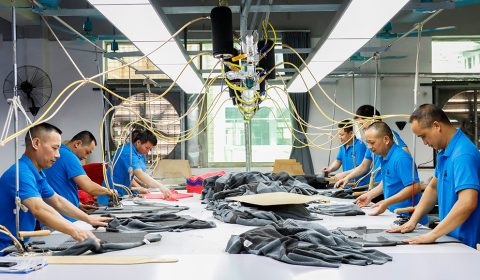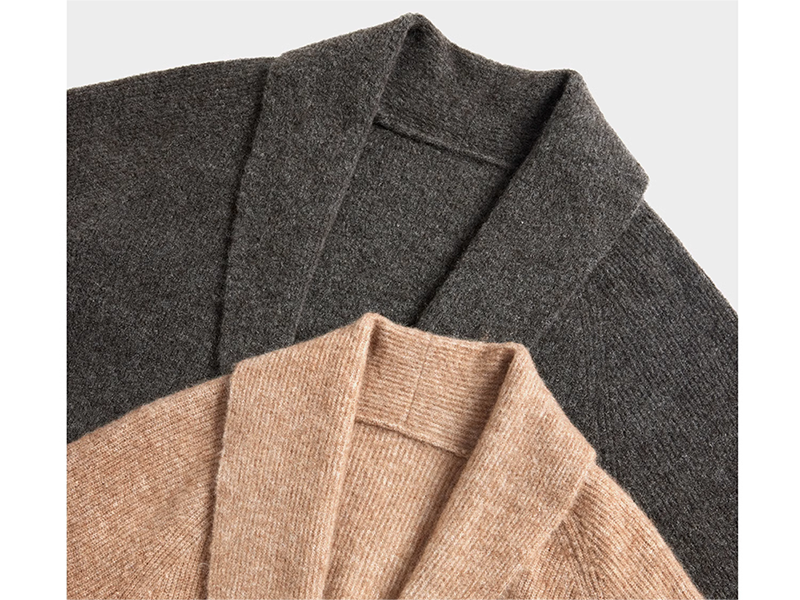Sustainable certification
Sustainability certification and labeling are not only an honor for sweater manufacturers, but also an important way to demonstrate to customers and the global community that they are committed to sustainable production. These certifications and labels promise a range of principles, from environmental protection to social responsibility, providing traceability and credibility throughout the production chain.
A common certification is “Fair Trade, “which emphasizes a manufacturer’s commitment to worker rights and community well-being. By becoming Fair Trade certified, manufacturers commit to paying fair wages, providing a safe and healthy working environment, and supporting community projects. This certification not only helps to improve the quality of life of workers, but also enhances the transparency of the production process and ensures the legality and fairness of the production process.
Organic certification
In addition, “organic certification” is another important mark, especially for manufacturers using organic fiber materials. Organic certification is a certification mechanism for agriculture and food production processes that follow specific organic farming standards and practices. It ensures that products are produced, processed, packaged and distributed in accordance with a set of strict organic production standards, including the use of organic fertilizers, the absence of chemical and synthetic pesticides, and the adherence to sustainable agricultural practices. Organic certification ensures that the entire supply chain from farm to finished product complies with organic farming standards, avoids the use of chemical pesticides and synthetic chemicals, and helps reduce adverse environmental impacts. Organic fibers are generally more environmentally friendly and also better for the wearer’s health because they don’t have harmful substances left behind.
Global Organic Textile Standard
Another highly regarded certification is the Global Organic Textile Standard (GOTS), which is one of the most widely used organic textile certifications in the world. GOTS was developed by a multi-stakeholder group of organic textile industry experts from around the world. The standard applies to the processing and production of textiles, including spinning, weaving, dyeing, finishing, manufacturing and packaging. GOTS requires that all chemicals used in textile production meet strict environmental standards, including the cultivation and harvesting of organic fibers, as well as social responsibility requirements in the production process, such as labor rights and working conditions.
GOTS is a globally recognized standard for organic textile production that helps consumers identify and select textile products that meet environmental standards. It covers the entire product life cycle, from organic cultivation of raw materials to manufacturing and packaging of the final product.
GOTS certification ensures organic production, environmentally friendly dyeing and processing of the fiber, as well as compliance with socially responsible standards. Manufacturers gain GOTS certification to add sustainability credibility to their products, as GOTS certification focuses not only on the fiber itself, but also on the entire production process.
In conclusion, sustainability certification and labeling are an important way for sweater manufacturers to communicate their commitment and efforts in sustainability to consumers. These certifications and labels are not only environmentally friendly, but also contribute to improving the well-being of workers, thus setting a positive example for the development of the sustainable fashion industry. By choosing certified and labeled manufacturers, consumers can also participate in efforts to support sustainability and contribute to a more sustainable future.




 English
English Deutsch
Deutsch Français
Français Italiano
Italiano Español
Español Русский
Русский Polski
Polski Nederlands
Nederlands Svenska
Svenska

